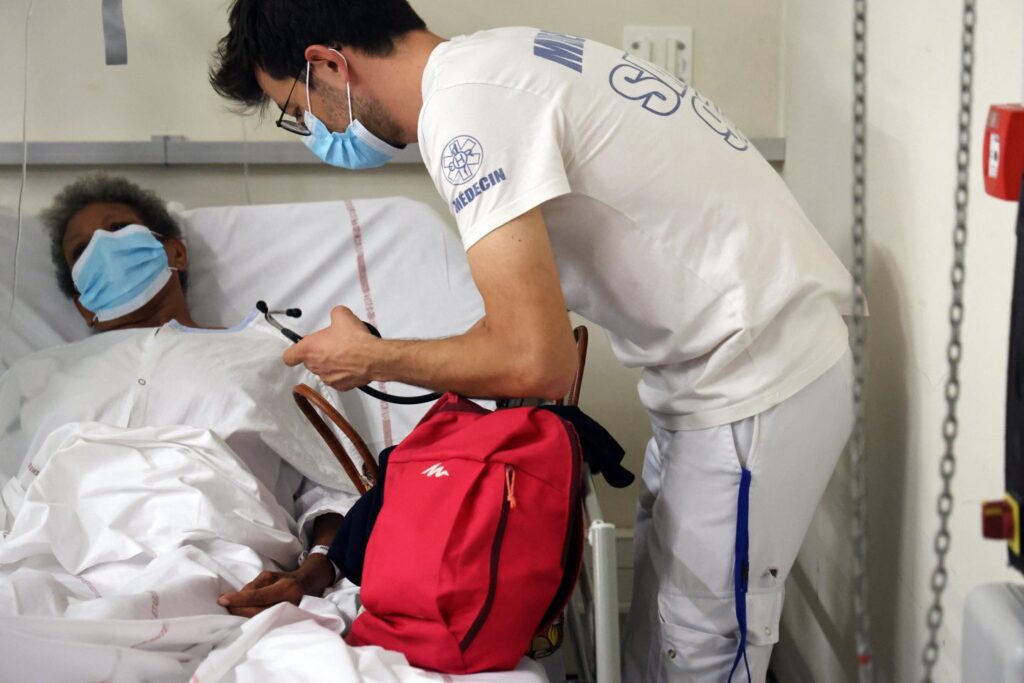Deadly viruses may be reaching the UK through airplanes and travelers’ luggage, experts warn, as international travel drives a rise in infections such as chikungunya and oropouche.
The UK has recorded its first case of oropouche in travelers returning from Brazil, while chikungunya cases among holidaymakers continue to grow.
Simon Clarke, a professor of cellular microbiology at the University of Reading, explained that more Britons are traveling to warmer, equatorial regions, which increases the risk of exposure.
While oropouche is mostly found in the Amazon and chikungunya in subtropical regions, both viruses are spreading. They have already appeared in parts of Europe and the United States, with small outbreaks in France and Italy.
Paul Hunter, a medicine professor at the University of East Anglia, warned about the possibility of infections arriving through mosquitoes on planes. He said that introducing these viruses to new populations is concerning.
Chikungunya is spread by mosquito bites and causes sudden fever and severe joint pain, which can last for months or even years. In rare cases, it can damage organs or be fatal, especially for children, older adults, or people with underlying health conditions.

Between January and June 2025, the UK reported 73 chikungunya cases, mainly in London, compared with 27 cases during the same period last year. Most cases were linked to travel to countries like Sri Lanka, India, and Mauritius.
Although the mosquitoes that carry chikungunya are not established in the UK, outbreaks in other countries highlight the potential risk, and experts expect more cases as the mosquito season continues.
Chikungunya outbreaks are rising worldwide. Islands in the Indian Ocean, including Reunion, Mayotte, and Mauritius, have reported surges, and China has seen over 10,000 cases since June 2025.
Cities like Foshan in Guangdong province have introduced lockdowns and insecticide spraying to control the virus. Other cities in the province, as well as Hong Kong and Taiwan, have also reported infections.
Since early 2025, 16 countries have reported around 240,000 cases and 90 deaths, according to the European Centre for Disease Prevention and Control.
Two chikungunya vaccines are approved in the UK and available at private travel clinics. Experts recommend that travelers take precautions such as using insect repellent, covering exposed skin, and sleeping under treated bed nets.
Dr. Philip Veal, a public health consultant at UKHSA, said that while chikungunya symptoms usually improve within a few weeks, joint pain can persist for much longer.
The UKHSA has also reported the first imported cases of oropouche in travelers returning from Brazil. Known as “sloth fever,” the virus spreads from primates, sloths, and birds to humans through midges and mosquitoes.
Symptoms include fever, headaches, joint and muscle pain, chills, nausea, and vomiting, and in severe cases, it can lead to brain inflammation. There is no vaccine or specific treatment, but fatalities are very rare. Travel-related cases have now been reported across Europe, including Spain, Italy, and Germany.
Professor Francois Balloux of UCL noted that chikungunya and oropouche are rising in areas where they are common.

Although these viruses cannot circulate in the UK due to the absence of the mosquitoes that spread them, travelers returning from affected regions can bring infections home.
Health officials have also noticed a rise in travel-related cholera in the UK, with eight cases in the first half of 2025 compared with only one in 2024, mostly linked to trips to India and Ethiopia.
At the same time, dengue cases have dropped by 67% across England, Wales, and Northern Ireland, and only four cases of Zika have been reported so far this year.
Experts warn that global warming and continued international travel may increase the risk of mosquito-borne viruses reaching the UK. Travelers are urged to remain vigilant and take preventive measures to protect themselves from these dangerous infections.








